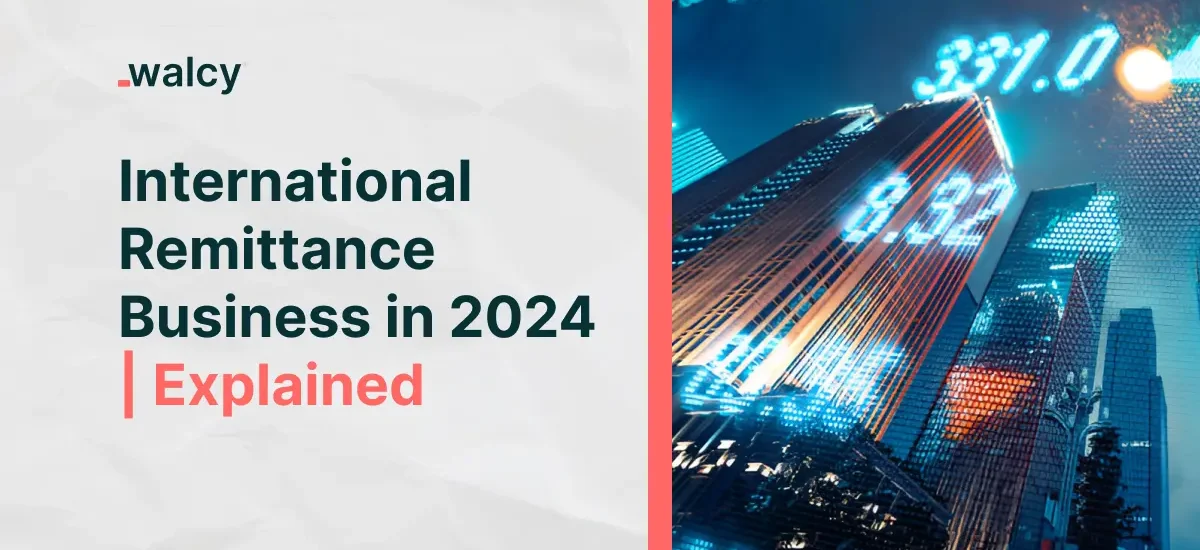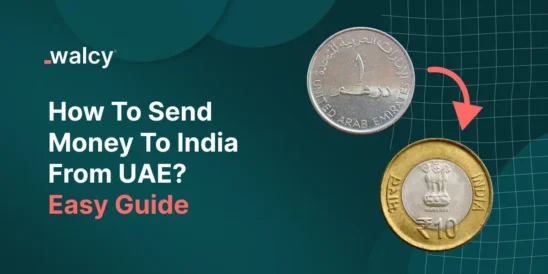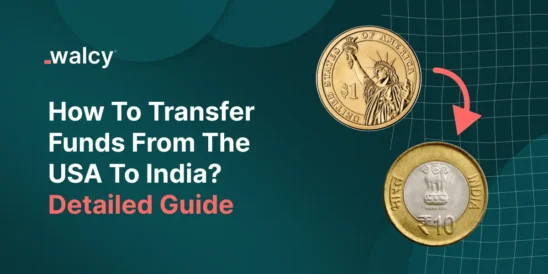The international remittance business is one of the fastest-growing businesses in today’s world.
Especially in developing countries like Nepal, whose economy is highly dependent on the remittance money sent by the citizens working abroad, international remittance businesses are just booming.
Starting an international remittance business is also not a hard nut to crack. However, not knowing the basics of remittance could cause an unfavorable impact.
The number of remittance companies has risen significantly with its demand and opportunity.
Online money remittances are expected to increase from $3.9 trillion total transaction value in 2024 to $6.5 trillion in 2028 forecasts Juniper Research. Remittance demand is rising, giving remittance businesses opportunities to expand and fulfill consumer needs.
We will be discussing every possible aspect of international remittance business in this blog. Starting from what remittance is, and what remittance business is, we will discuss the international remittance business model too.
Moreover, we will explore a list of top remittance companies and the method of starting a remittance business at the end.
What is Remittance?

In easy terms, remittance is the act of transferring or sending a specific amount of money from one party to another. Most people perceive the transfer of funds overseas as remittance; nevertheless, the transfer within the country also falls under the same.
A remittance is often done by a person working in a foreign nation who wishes to send money back home or to family and friends. Migrant workers frequently use remittances to assist their family members and loved ones who reside in less economically developed countries.
Remittances can be delivered via a variety of channels, including banks, money transfer businesses, and internet platforms, and can be received in the form of cash, bank deposits, or mobile wallet holdings.
The act of making remittances often includes a fee or commission imposed by the service provider, which varies depending on the amount of money transferred, the destination nation, and the preferred method of transfer.
Most households in developing nations depend on the remittance money sent by their family members back home to fulfill their basic needs.
Not just families, but remittance, also plays a critical role in the country’s economic growth leading to the development of the country. The improved living standard of people in developing countries due to remittance, couldn’t be forgotten.
Know more about bank remittance
Know more about overseas fund transfer
What Is Remittance Business?
The remittance business is a kind of money transfer business, which encompasses facilitating and simplifying the way funds are transferred from one place to another. The basic idea of remittances is to transfer funds from migrant workers to their family members or children in their home nations.
However, it is a multifaceted industry with various stakeholders and processes. In other simple words, a business managing the remittance process is called a remittance business.
Some of the most popular remittance businesses are World Remit, Western Union, Moneygram, etc.
Read about: The Best Way to Transfer Large Sums of Money Abroad
International Remittance Business Model

As mentioned above, the international remittance business is growing rapidly in developing countries. Since it is growing and growing day by day, you must be thinking about what is its business model. You must be curious about how this business works and how it makes money.
You have to wait no longer. The international remittance business model is quite simple. What remittance businesses do is partner with fintech companies, banks, and other institutions to facilitate quicker, easier, and more efficient transactions.
Moreover, they make use of payment systems like SWIFT, SEPA, and many more.
They integrate such payment systems into their system and make transactions whenever required. The major source of revenue for international remittance businesses is their service charge, transaction fees, and currency exchange fees.
Since remittance transaction is made in bulk amounts, the international remittance business makes a good profit from it.
Read about: International Payment Fees | The Essential guide.
Guide On Starting A Remittance Business
As mentioned previously, starting a remittance business is not a hard nut to crack. However, you should follow some basic steps with full dedication and effort. If you make a wrong choice in any step, you shall have to bear unnecessary obstacles and losses.
Step 1: Manage a good amount of investment fund
The first step in starting an international remittance business is to manage funds. It can cost you millions just to get an operating license. Besides that, you have other service costs and setup costs to bear.
Step 2: Research about target audience and USP (unique selling proposition)
After managing funds, you need to identify who your target audiences are. For this, you should do research about the demographics, economic status, age, gender, etc.
Similarly, you should also have a transparent knowledge of what unique service will you be offering the customers.
As the competition seems tough in this field, it would be hard to thrive in this market without any USPs. USPs of the Remittances business could be cheaper exchange rates or lower service fees.
Step 3: Obtain an operating license
After doing the needful research on the target audience and USP you must have the confidence that you should or shouldn’t start a remittance business.
If you are thinking of moving ahead, you need to start preparing to obtain a license. The operating license is provided by the Central bank of the respective country.
The requirement for the license may vary from one country to another. You should do good research on it, prepare the required documents, and finally get an operating license.
Step 4: Prepare business process and compliance
After obtaining a license, the next step in starting a remittance business is to prepare all the necessary processes and compliances.
You need to establish your own set of rules and restrictions. Your business must have its working process. Create a strong structure that incorporates strong anti-money laundering (AML) and Know Your Customer (KYC) procedures that adhere to regulatory rules.
Establishing a firm foundation in compliance is critical for establishing secure transactions and user trust. Consider using compliance-as-a-service, which offers remote and outsourced compliance assistance by specialists who stick to regulatory criteria.
Read about: What Is Money Laundering? Definition, Types And Examples.
Step 5: Open a correspondent bank account
After setting up the business process and compliances, you are required to open a correspondent bank account to manage multiple currencies.
This helps to make the smoother and quicker transaction. You shall choose reputable banks or banking service providers for the better service that aligns with your goal.
Step 6: Set Your IT System and infrastructure
The remittance business needs to have a robust IT system and infrastructure to operate. This infrastructure will serve as the foundation of your remittance business processes, including transaction processing, customer handling, and data security.
Try developing white-label mobile or web banking applications to provide a superior service for your customers.
Step 7: Make Partnerships and required Integrations with Financial Institutions
After all the system and infrastructure is ready, you need to build a partnership with banks and other financial institutions.
Mostly for providing cheaper currency exchange rates, partnerships with various forex providers are essential. Additionally, integrating various payment gateways in your system would make smooth transactions and develop trust among the customers.
Read about: How Fintech is Transforming B2B Cross-Border Payments?
Step 8: Make needful marketing
After making all the partnerships and integration, you are now ready to start a remittance business. However, due to the high competition, any business must do marketing and branding of their business. Do not be afraid to invest in marketing. You will get a good return for it in the long run.
Step:9: Focus on customer satisfaction
Lastly, after starting a business, try to focus on customer satisfaction rather than profit in the early stage of the business. Client satisfaction should be the major priority, as it assists in retaining customers. If the loyal customers are retained, you are likely to have a stable business over time.
Top 3 Remittance Companies In The World

Some of the biggest remittance companies in today’s world are:
Western Union
Western Union is one of the biggest remittance companies in the world. It is a global leader in cross-border money transfer, payments, and digital financial services.
Western Union’s primary services include consumer money transfers, business solutions, and consumer services such as bill payment, money orders, retail foreign exchange, prepaid cards, lending partnerships, and digital wallets.
The company’s services enable consumers, businesses, financial institutions, and governments to send money and make payments around the world.
World Remit
The second in the list comes World Remit. If you wish to send business remittances or online money remittances, World Remit will be the perfect choice. Over 8 million people use the WorldRemit network to send and receive money around the world.
World Remit was created in 2010 by a person living abroad who was dissatisfied with the complex and expensive procedure of sending money home.
World Remit is on a mission to make it easier to transmit digital payments through popular remittance routes in 130+ countries and 70+ currencies worldwide.
Moneygram
The third in the list of the best remittance companies comes from Moneygram. MoneyGram is the worldwide second-biggest money transfer provider, providing transfer services, bill payments, and corporate products and services.
MoneyGram allows you to send money online, in-app, or through an agent and pay using cash, wire transfer, debit, or credit card. Payments can be made to your recipient’s bank account or mobile wallet, or they can be collected in cash.
Read about: How Credit Card Transaction Processing Works? A Quick Guide
Conclusion
To conclude, the international remittance business is one of the most rapidly growing businesses in the world. There are several things that you should think about before starting a remittance business.
Since established players are already in the market, think twice before entering into it. Obtaining a remittance license is a must for this business and it might cost you millions.
Read about: Best Neobank for Business Transactions in 2025.
Do follow us on Facebook and LinkedIn, to stay connected with us.



